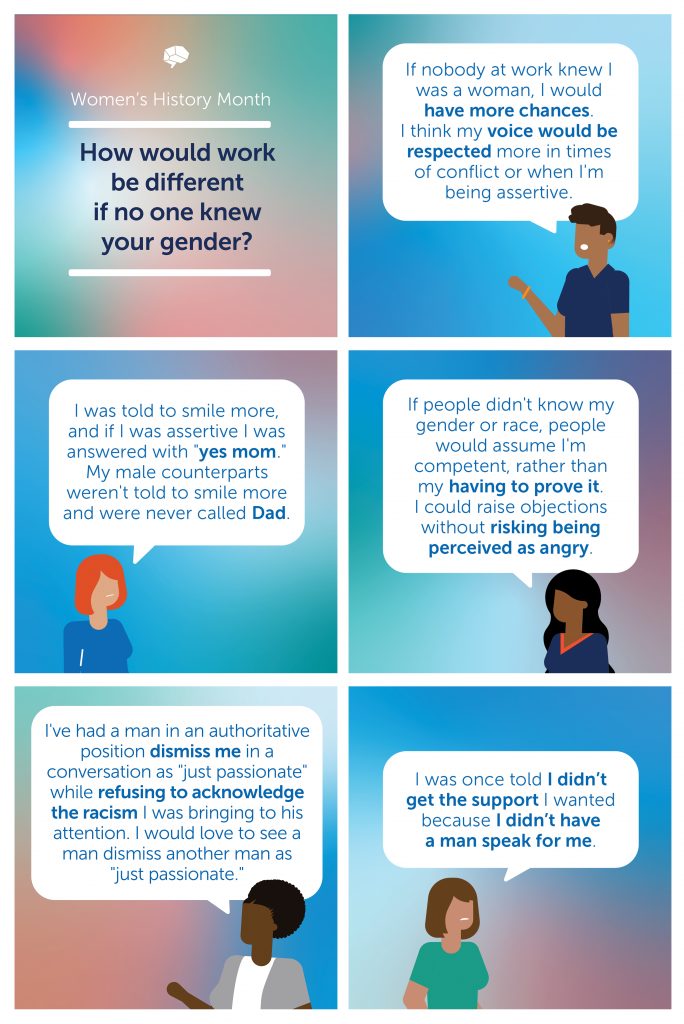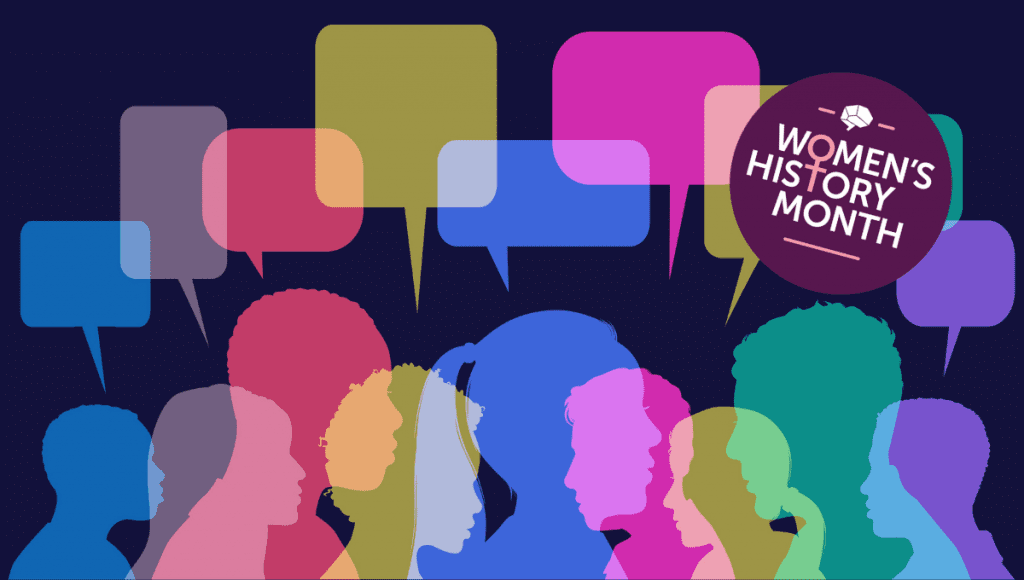While talking about how to celebrate Women’s History Month, we began to wonder how gender has impacted people’s experiences at work. So we asked our community: How would work be different if no one knew your gender? All month, we’ve been gathering your stories. Here are some highlights from the responses we received.







